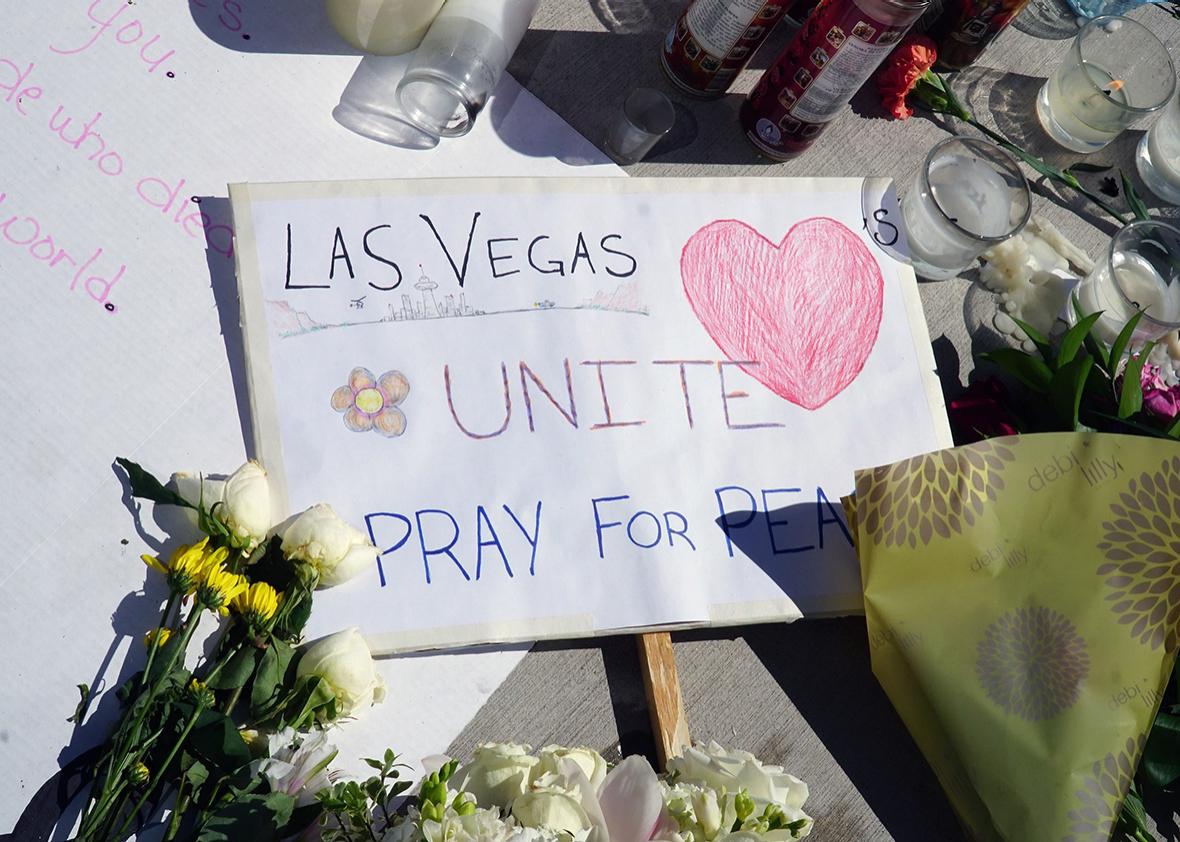The first thing I felt Monday morning was grief. The slow trickle of news about another mass shooting can feel like just the next chapter in a long national assault on helpless victims, but it’s important we focus our energy on the victims whose experience in Las Vegas on Sunday night is new. Right now, I’m thinking about them and everyone else who has experienced this horror. My heart is broken.
The second thing I felt Monday was relief. That’s what I always feel when I learn a mass shooter wasn’t Muslim.
I wish, like many other Muslims I know, that my mind didn’t immediately arrive at “Oh God, was it a Muslim terrorist?” That’s a terrible way to think. But I don’t just feel that way because I don’t want my community to be forced to confront false associations. I’ve learned Americans have more pointed, sobering conversations about the root causes of this violence when they’re forced to confront a perpetrator they can’t so easily separate from themselves.
I know what will happen as soon as I hear a Muslim-sounding name connected to a shooting on the news. There’s question of accountability: Why didn’t “moderate Muslims” do more to stop it? What could I have done in New York to stop the Muslim shooter in Florida? Or California? If the shooter was born in America, the question then turns to the parents: Should they ever have been allowed to come here?
That’s how it went down after Omar Mateen was identified as the shooter in the Pulse nightclub massacre in Orlando in June 2016, until Sunday the deadliest mass shooting in modern U.S. history. Within hours, reports chased down his immigration status and his connections with foreign terror groups, and a New York Times writer declared it the worst act of terrorism on American soil since Sept. 11, 2001. By the following Monday, then-candidate Donald Trump had also seized on Mateen’s religion and national origin, bragging on Twitter “for being right on radical Islamic terrorism.” He added, in an angry, rambling speech, “The only reason the killer was in America in the first place was because we allowed his family to come here.”
Compare that with Monday. President Trump struck a note of “hope” and “unity,” saying that the attack that left 59 dead and more than 500 injured was “pure evil.” In trying to understand shooter Stephen Paddock’s motives, reports noted he had “no religious affiliation, no political affiliation” and repeatedly quoted his brother’s insistence that the shooter was “just a guy.” (The Islamic State attempted to claim credit for the attack, but the FBI has found no credible links.)
This is a pattern. It happened after Dylann Roof killed nine black parishioners in Charleston, South Carolina; after James Holmes killed 12 people in a movie theater in Aurora, Colorado; after Jared Loughner killed six in Tucson, Arizona. When we face horrible violence, we have a natural drive to separate ourselves from the perpetrator. What makes the gunman different from us? When it’s a Muslim terrorist, that’s easy: That person is a Muslim, and I’m not, so it must be Islam behind the attack. But when it’s a white American man, that’s proven more complicated for us to process as a country.
As a Muslim, I’ve learned to look past the shooter’s political affiliation or religion more quickly, because that’s almost never a truly satisfying reason for an attack. In the case of Roof, Holmes, and Rodger, the conversations shifted to racism, gun control, mental illness, patriarchy—urgent conversations at the root of their violence. We question their stability, their parents, the media they’ve consumed. We don’t stop by saying that their “type” explains everything.
With Muslim attackers, “Islam” is satisfying enough a reason for terror for too many. Muslims in America know what it’s like to see visages like ours blasted on the news as “the face of terror,” which has empowered us to seek more meaningful answers to why these things continue to happen: a misguided belief in a war between cultures, depression rooted in rejection, revenge. In the case of Mateen, repressed sexuality may have played a role.
As more details come out that detail Paddock’s motives—assuming they do at all—we can focus on what pushed him over the edge, how he could stockpile such an arsenal, and how we can stop that in future. Because he isn’t Muslim, we are able to look beyond wherever he may have prayed, so we can try to figure out real, practical ideas—not sensational, xenophobic ones—for what we can do to make this country safer than it was on Sunday night. I can only imagine Trump’s comments if the ISIS link turned out to be real.
Living through these attacks my entire adult life and holding my breath each time have made me see how important it is that we seek the real, individual motivations behind these attacks and how they were carried out. The rush to categorize killers, no matter who they are, will only ensure these horrors continue.
